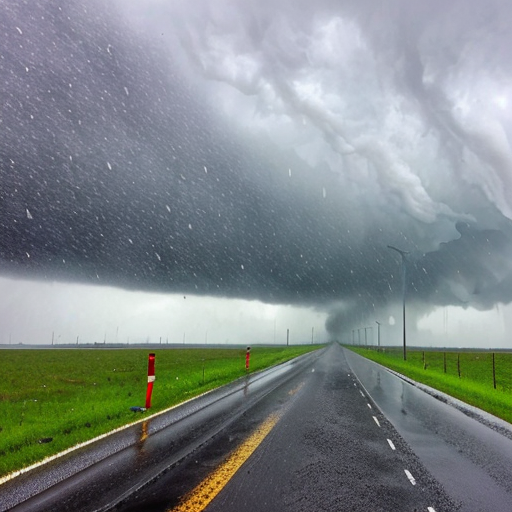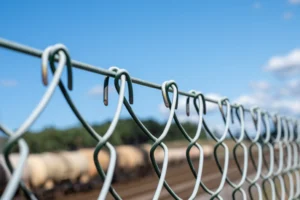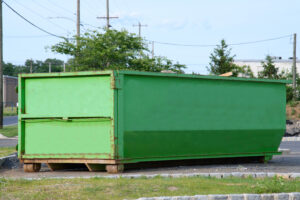Ordering a dumpster may seem like a straightforward task, but there are common pitfalls that can complicate your project and create unnecessary hassle. By avoiding these mistakes, you can ensure a smoother and more efficient experience. Here are the top 7 mistakes to avoid when ordering a dumpster:
Choosing the wrong dumpster size: One common mistake is ordering a dumpster that is too small for the project. For example, imagine you’re renovating your kitchen and underestimate the amount of debris generated. You order a small dumpster, but as the project progresses, you quickly realize it won’t accommodate all the waste. Now you have to arrange for an additional dumpster, resulting in extra costs and delays. To avoid this, consult with your contractor or the rental service to accurately assess the volume of debris and select the appropriate dumpster size.
Underestimating the need for multiple dumpsters: Some projects, such as large-scale cleanouts or commercial construction, may require multiple dumpsters. For instance, if you’re renovating an entire office building, a single dumpster may not suffice to handle the significant amount of waste generated. By failing to plan for multiple dumpsters, you risk running out of space and causing delays. It’s essential to communicate your project requirements to the rental service and discuss the potential need for additional dumpsters.

Don’t make these mistakes when renting a dumpster
Neglecting to plan the placement of the dumpster: Careful consideration of the dumpster placement can save you time and inconvenience. Let’s say you’re working on a landscaping project that involves regular deliveries of materials. Placing the dumpster in a spot that blocks access to the delivery area will disrupt your workflow and create unnecessary logistical challenges. By planning the placement in advance, taking into account the project’s flow and potential future needs, you can avoid obstacles and additional costs associated with relocating the dumpster.
Not understanding the rental period and policies: Lack of understanding regarding the rental period and policies can lead to unforeseen complications. Suppose you underestimate the time required to complete your project and rent the dumpster for a shorter period. As a result, you may face additional fees for extending the rental or experience delays in waste removal if the rental service automatically schedules pickup without your knowledge. Familiarize yourself with the rental period and policies to ensure they align with your project timeline.
Failing to consider the delivery day: Proper coordination of the dumpster delivery day is crucial, especially when your project’s timeline depends on it. Suppose you plan to start a construction project with a full crew early in the morning. If you fail to schedule the dumpster delivery the day before, you may find yourself with a crew standing idle, waiting for the dumpster to arrive. By considering your project schedule and communicating your specific delivery time requirements, you can minimize delays and keep your project on track.
Overlooking weather conditions: Weather conditions can significantly impact your project timeline. Imagine scheduling a dumpster delivery on the day heavy rain is forecasted. If the dumpster arrives during a downpour, it may become challenging to load the debris, potentially causing delays. To mitigate this risk, plan ahead by scheduling the dumpster delivery a day earlier if adverse weather conditions are anticipated. This precaution ensures that you have the dumpster on-site and ready to use when needed, regardless of the weather.
Neglecting to communicate special requests: If you have any specific requests related to delivery times or other considerations, make sure to communicate them clearly to the rental service. For example, if your project requires the dumpster to be delivered to a restricted-access area or during specific hours, inform the rental service in advance. While they strive to accommodate such requests, it’s important to understand that unforeseen circumstances, such as traffic or mechanical issues, can cause delays. By planning ahead and providing necessary details, you increase the chances of a seamless delivery process.
By avoiding these common mistakes and implementing proactive measures, you can ensure a smooth and efficient dumpster rental experience for your project. Take the time to select the right dumpster size, plan for multiple dumpsters if necessary, carefully plan the placement, understand the rental period and policies, consider delivery day and potential weather impacts, and communicate any special requests to the rental service. These actions will help minimize complications and ensure a successful waste management solution for your project.
Disregarding weight restrictions: Another mistake to avoid is disregarding weight restrictions when ordering a dumpster. Each dumpster has a maximum weight capacity that must not be exceeded. Overloading the dumpster can result in additional fees or even refusal to pick up the container. Make sure to discuss the weight limitations with the rental service and estimate the weight of the debris accurately. If you anticipate heavy materials, such as concrete or bricks, consider renting a dumpster specifically designed for heavy loads.
Failure to obtain necessary permits: Depending on your location and the placement of the dumpster, you may require permits from your local authorities. Neglecting to obtain these permits can result in fines or even halting your project. Research the regulations in your area and determine if permits are necessary. If they are, allow enough time to obtain them before the dumpster delivery date.
Not segregating materials properly: Proper waste segregation is essential to ensure responsible disposal and recycling. Failing to segregate materials can lead to additional costs and environmental impact. Different types of waste, such as construction debris, hazardous materials, or recyclables, should be separated accordingly. Discuss with the rental service the specific requirements for waste segregation and ensure that you follow them diligently.
Ignoring prohibited items: Dumpster rentals typically have a list of prohibited items that should not be disposed of in the container. These may include hazardous materials, flammable substances, or electronics. Disposing of prohibited items can lead to legal consequences, fines, or potential harm to the environment. Familiarize yourself with the list of prohibited items provided by the rental service and ensure that you adhere to it strictly.
Lack of communication with neighbors: If you live in a residential area or share a property with neighbors, it’s essential to communicate your dumpster rental plans with them. Inform them about the delivery and pickup dates, as well as the expected noise and any temporary inconveniences. Being considerate and transparent with your neighbors can help maintain positive relationships and minimize potential conflicts.
By avoiding these additional mistakes and incorporating these considerations into your dumpster rental process, you can ensure a smoother and more efficient waste management experience. Taking the time to understand the regulations, communicate effectively, and follow proper waste disposal practices will contribute to a successful project and responsible environmental stewardship.




